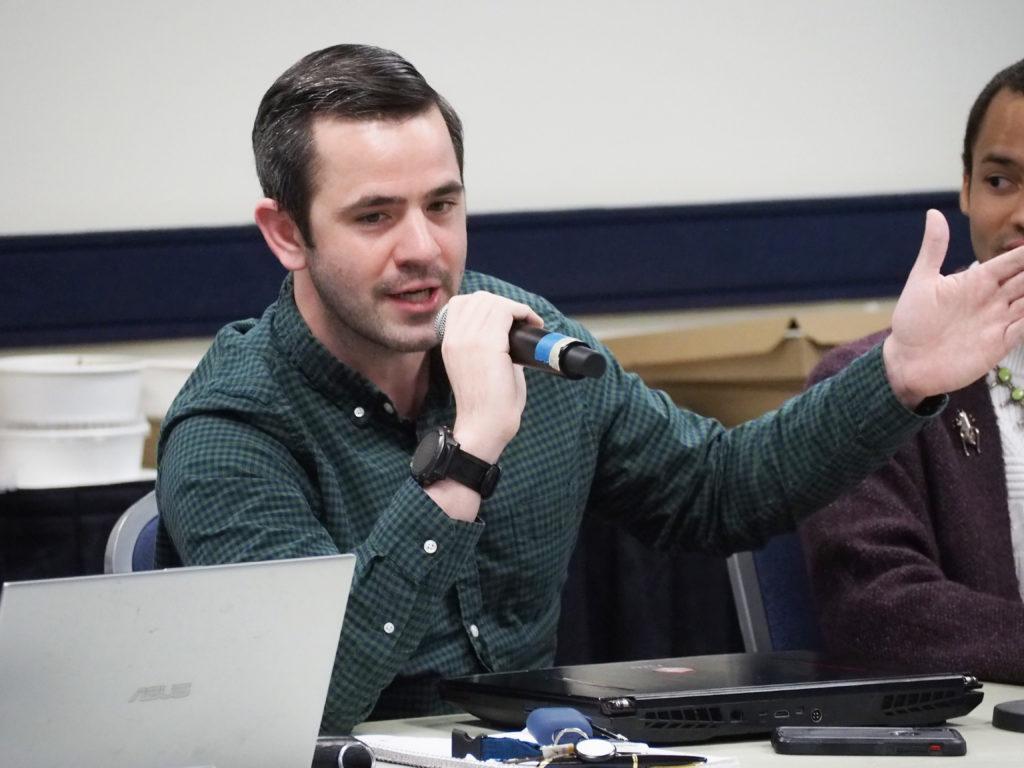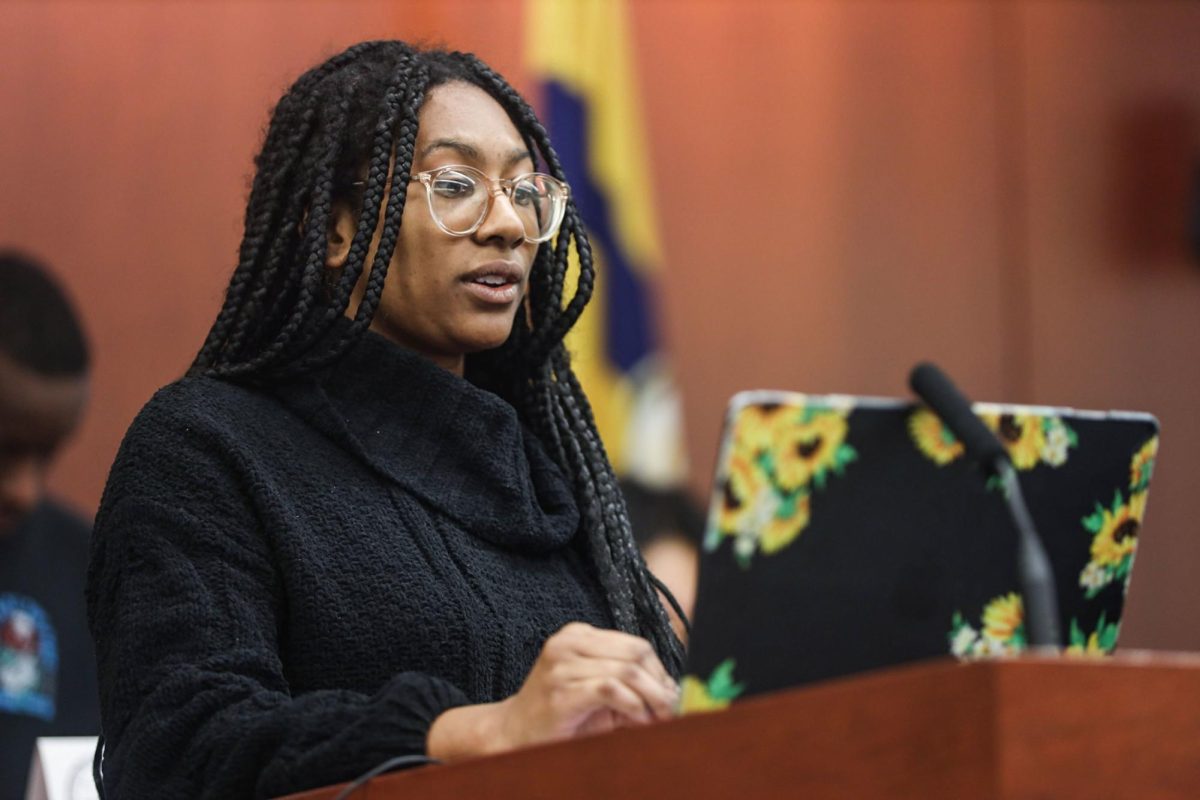Updated: Feb. 24, 2020 at 8:41 p.m.
The Student Court ruled in favor of a Student Association senator who accused the organization of violating its governing documents.
SA Sen. Jake Corsi, CCAS-G, filed a complaint in December stating the SA violated its bylaws when allowing three members of the executive branch to serve in a senate committee that will propose changes to the constitution. The court ruled Thursday that permitting executive members to serve in senate committees would breach the separation of powers “inherent” in the SA’s constitution, according to the court’s opinion, which was obtained The Hatchet.
Of the four justices who considered the case, three voted to rescind the voting privileges from the three executive members and one dissented, the ruling states. The executive members who served on the constitutional committee can no longer vote on changes made to the SA’s constitution, according to the opinion.
“The weightiness of the question presented, and the consequences of the mandates of our answer, are not lost on this court,” the opinion states. “It is also not lost on this court that the case law established herein could very potentially become moot at the dawn of the new constitution made by the committee.”
Corsi asked in his complaint that the court rescinds voting powers from SA President SJ Matthews, SA Executive Vice President Amy Martin and SA Vice President for Judicial and Legislative Affairs Logan Basch, who would have served as voting members on the committee.
SA Sen. AJ Link, Law-G, said committee members met over the weekend to draft proposed changes to the constitution, which the members plan to present and vote on in the senate meeting Monday. The student body must approve changes to the document through a referendum, according to the SA constitution.
SA Chief Court Justice Wayne Arminavage said the court decided that the separation of powers doctrine is “fundamental” to the governing process but disagreed on which members should lose voting power. Arminavage said he voted against stripping Martin’s voting privileges because her rights are less straightforward as an executive and legislative leader.
He said the president and vice president for judicial and legislative affairs are “clearly” part of the executive branch, which would overstep the separation of power.
But the court questioned whether it can make decisions based on the separation of power theories and principles outlined in the executive committee’s voting rights, the opinion states.
Arminavage said the court majority decided to apply the voting restriction to all three executive members because the members’ voting power was an “encroachment” on the legislative power. He said the SA needs to clarify clauses regarding the separation of powers to prevent similar confusion from arising in the future.
“I have my own personal judicial doctrine to not reach past the pleadings, and that means that I don’t like to do more than what the initial complaint asked me to do,” Arminavage said.
Matthews, Martin and Basch said in a joint statement they are “disappointed” in the court’s decision but are “glad” the issue has been resolved. They said they will be available to committee members who may want advice from the executive members but will no longer “actively participate” in coordinating the proposed changes to the SA’s constitution.
“Now the SA can finally get back to doing what it is meant to do: working to create a better GW for the student body,” the statement reads.
Corsi, who filed the original complaint, said “justice was served” in the court’s decision. He said SA President SJ Matthews should work with senators who have constitutional concerns “instead of ignoring them.”
“It’s past time that student leaders take our governmental documents seriously,” Corsi said.
Link, G-Law, said the opinion of Associate Justice Haimowitz stating, “today’s case follows the regrettable tendency of the SA in their ignoration of the Charter and Constitution of the SA,” is “absolute garbage.” Link said Haimowitz is a former member of the legislative body, making his “cheap shots” at the senate “unbecoming” of his role as a justice.
He said the executive should have a voice on the articles and sections drafted in the new constitution because the changes can affect both the executive and legislative branches. Link said the committee will still produce a document for the full senate, which will vote on the changes made even though the ruling no longer allows members of the executive branch to participate.
“While I respect the court as an institution, and appreciate the dissenting opinions, I take strong issue with Justice Haimowitz’s brazen condemnation of the other two branches of the Student Association,” Link said in an email.
This post has been updated to correct the following:
The Hatchet incorrectly reported that Ian Haimowitz is a chief justice on the Student Court. He is an associate justice. We regret this error.








